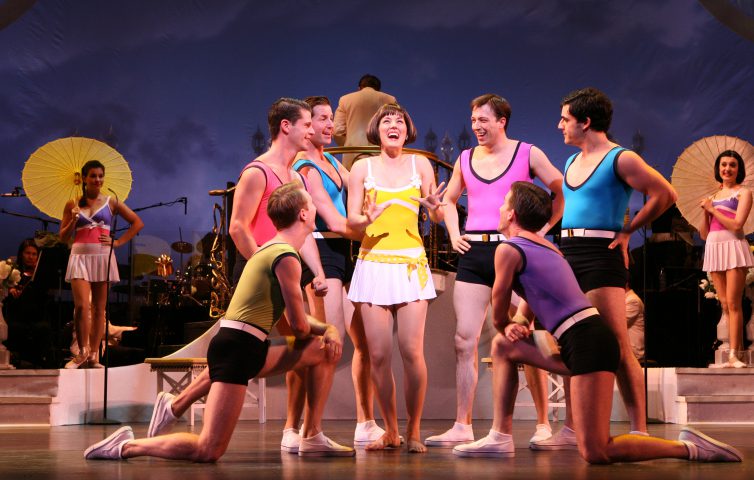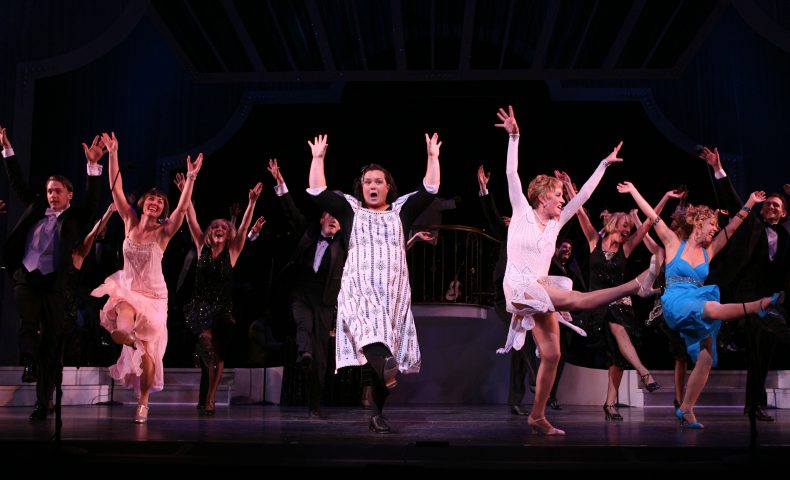Like the title character herself, No, No, Nanette is pretty irrelevant. Of course, the 1925 musical wasn’t written that way, but in 2008, when the protagonist’s biggest problem is whether or not she can spend the night at her family’s country home by the beach, the gravity of the situation just doesn’t translate. That said, the Encores! production was the most delightful traditional musical comedy up this year.
Encores! never fails at delivering big stars to carry their semi-staged concerts of old or forgotten musicals, and No, No, Nanette brought us the amazing talents of several famous names. Sandy Duncan, as Nanette’s optimistic Aunt Sue, wowed the audience with fancy footwork no one really expected her to have in her; her 60+-year-old leg kicked high over her head on more than one occasion. It was impossible to look away. As Sue’s philandering hubby, the generous-to-a-fault Uncle Jimmy, Charles Kimbrough didn’t fare as well in hiding his age. A few flubbed lines and general awkwardness in his skin could have been a reflection of his miscasting. Rosie O’Donnell, however, gleefully grabbed hold of her role as the curmudgeonly maid, relishing her one-line zingers each time she answered the relentless doorbell. O’Donnell didn’t open her mouth to sing until the final line of the show, and the leitmotif threaded through all of the so-called action: “I want to be happy/But I won’t be happy/Till I make you happy, too.”
In a career-making performance was Beth Leavel, who won a Tony Award for her role as the chaperone in The Drowsy Chaperone. From her sassy opening number, Leavel commanded the stage, towering above the other actors (maybe her art deco dresses had something to do with it). By act three’s “The ‘Where-Has-My-Hubby-Gone’ Blues,” Leavel had brought the house all the way down.
Nothing really happens in No, No, Nanette. At first it’s a disappointment, but when its cast’s unbridled talent, its fantastic dance numbers and its happy-go-lucky sentiments sink in, why bother with realism? In 2008, this could be just what audiences need.



What Do You Think?